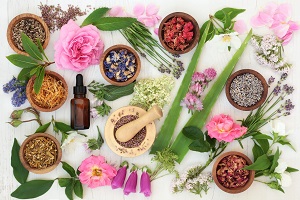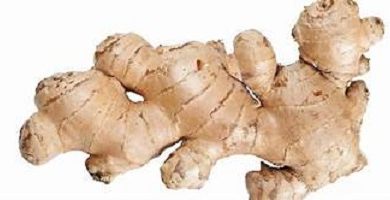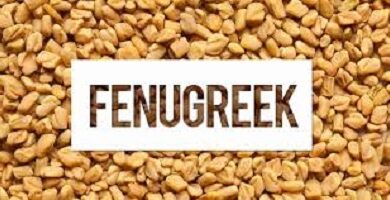Natural Fertility Herbs: Do They Work?
Natural Fertility Herbs: Do They Work?
- 5 Best Herbs for Fertility and Reproductive Health
- Herbs To Naturally Support Fertility
- How To Use Fertility Herbs to Enhance Your Fertility Naturally
Table of Contents
Natural Fertility Herbs: Do They Work?
Many people from diverse cultures use and prescribe herbs to improve fertility. You may have even come across a discussion on “fertility herbs for men and women” on the internet.

However, there is no scientific evidence that they function; thus, before using herbs for fertility, consult your doctor or an herbal medicine specialist.
We’ve included a list of herbs that enhance fertility in both men and women in this post.
Fertility and Reproductive Health Herbs
Herbs have long been used to improve fertility and increase the odds of conception. Chasteberry, black cohosh, red clover, and maca are some of the most often utilized fertility herbs.
Herbs can be a strong tool for enhancing overall reproductive health when combined with a balanced diet and lifestyle choices such as frequent exercise and stress reduction techniques.
So, what do you need to know about fertility herbs? Let us investigate more.
Fertility Herbs’ Role in Pregnancy
Fertility herbs are natural medicines used to improve fertility and increase the likelihood of conception.
They function by managing hormonal imbalances, enhancing reproductive health, and increasing egg and sperm production.
Fertility herbs have also been shown to lower stress, which is a major component that might impair fertility.
Unlike conventional fertility therapies, which can be costly, invasive, and risky, fertility herbs are safe, inexpensive, and have few to no adverse effects.
They can also be used in conjunction with traditional treatments to increase their efficacy.
Can Herbs Help Fertility?
Certain plants have traditionally been thought to improve fertility in both men and women.
Certain herbal supplements, for example, are thought to help men increase their sperm count.
Herbs such as chasteberry (also known as vitex for fertility) and red clover have been demonstrated to support hormonal balance in women, increasing their chances of conceiving successfully.
Though traditional knowledge may make a clear divide between “natural” and “medical” fertility interventions, new research suggests that we may need to reconsider this distinction in the case of herbs and fertility.
Are Herbs Safe to Take?
Before taking any vitamins to help with fertility treatments, always check with your doctor.
Some suggest that these herbs are safe and helpful for treating illnesses ranging from endometriosis to PCOS, while others argue that they can have major negative effects.
The truth is that taking fertility herbs without first visiting a healthcare expert can be dangerous.
These herbs may interfere with other drugs or supplements, or they may have unforeseen consequences on hormone levels or uterine function.
As a result, they may have a distinct effect on each individual.
Some herbs, when used correctly and under the supervision of an experienced healthcare provider, can be a natural and safe choice for people wishing to manage their reproductive health.
Those interested in the benefits of herbal treatments should conduct extensive research and collaborate closely with a trained expert.
Can Herbs Help with Fertility? Can Herbs Cure Infertility?
There is no definitive evidence that herbs cure infertility. However, in many cultures, they have been utilized to support female and male reproductive health and fertility.
Some herbs and herbal mixes are still recommended in Chinese and Ayurvedic medicine to support hormonal balance and fertility cycles.
Some herbs were also utilized in conjunction with IVF and intrauterine insemination (IUI) method in which a sperm is directly placed inside the uterus to boost the likelihood of egg fertilization.
FDA Does Not Regulate Herbal Supplements but Are They Safe to Take?
Herbal fertility supplements are subject to minimal FDA regulation in the United States.
They are not subjected to the same scientific examination as pharmaceuticals and are not as strictly controlled.
As a result, even though herbs and herbal supplements are labeled ‘natural,’ they may have adverse effects.
Before using any herbs, consult with an experienced herbalist or naturopath.

When should herbs not be taken?
One of the goals of using herbal medications is to improve ovarian function. Individuals on birth control pills, Antigon/Cetrotide, or Lupron should avoid taking herbs.
Because these drugs are used to inhibit or reduce ovarian function, they have the opposite impact that herbs do.
Do Herbal Medicine Practitioners Own Licenses or Registrations?
Herbal medicine is not typically a licensed profession. However, some providers pursue regional or national board certification. To be safe, seek the advice of a certified practitioner.
Fertility supplements are growing in popularity as a result of delayed pregnancies and a continuing drop in fertility rates. As a result, industry analysts anticipate a 7.9% compound annual growth rate (CAGR) in the worldwide fertility supplements market from 2022 to 2030.
Furthermore, while the natural supplement market is likely to develop steadily, the segment for synthetic or a combination of synthetic and natural supplements is expected to increase significantly.
IVF and Herbs
Herbs have been found in studies to assist in boosting fertility and enhancing the success rate of IVF treatment. Again, any supplements used should be discussed with your doctor before beginning the IVF process to guarantee your safety and the best possible results from your fertility therapy.
Best Fertility Herbs
In the following sections, we will look at some of the best herbs for fertility. Which ones should you contemplate?
Vitex (Chasteberry) for Fertility
Chasteberry, also known as vitex, is a medicinal herb that has long been used to promote male and female fertility.
The extract from the chasteberry tree’s fruit contains a variety of minerals and phytochemicals that can aid in the regulation of hormone levels in the body.
Chasteberry, in particular, may be highly useful in restoring normal progesterone levels in women with ovulation and menstrual difficulties.
Numerous studies have found that chasteberry may help male fertility by improving sperm count and motility.
Black Cohosh for Fertility
Black cohosh is a well-known plant for its fertility-boosting qualities.
This plant contains phytoestrogens and other nutrients including zinc and magnesium, as well as many active chemicals that enhance reproductive health.
Taking black cohosh may help increase ovulation and encourage regular menstruation, according to research.
Many women incorporate this herb into their overall reproductive plan, especially when attempting to conceive naturally or through in vitro fertilization.
Black cohosh is a well-studied natural treatment for promoting fertility and preparing the body for pregnancy.
Red Clover for Fertility
Red clover is a well-known and commonly used herb for enhancing male and female fertility.
Its high nutrient content and high concentration of helpful chemicals make it a good choice for boosting reproductive health.
Red clover has a lot of magnesium, which may help men’s sperm count and motility. This herb may assist women in controlling their estrogen levels, which may affect both ovulation and fetal development.
Red clover is also a natural source of phytoestrogens, which can assist women in regaining balance following periods of hormonal imbalance or imbalance caused by certain medications or therapies.
Evening Primrose Oil for Fertility
For ages, women have utilized Evening Primrose oil as a natural fertility cure.
This plant-based oil is high in omega-3 and omega-6 fatty acids, both of which are essential for female reproductive health.
These fatty acids may help regulate hormone levels and encourage ovulation, making it a helpful medication for women who are having difficulty conceiving.
Evening primrose oil is typically safe to consume alongside regularly prescribed reproductive drugs without interfering with their efficacy.
However, as usual, consult with your doctor or fertility team.
Maca for Fertility
Maca is a natural plant extract that has grown in popularity as a fertility supplement.
Many studies have found that maca may assist in improving both male and female reproductive health, increasing conception rates and the chances of a successful pregnancy.
This potent herb works by balancing hormone levels and improving general health, resulting in excellent pregnancy conditions.
Maca, as an antioxidant-rich food source, can help protect the body from oxidative stress, which is frequently related to infertility concerns.
Cinnamon for Fertility
Cinnamon has long been regarded as help with fertility. Cinnamaldehyde, a chemical found in cinnamon, has been demonstrated in studies to help activate the reproductive system and promote hormonal balance.
Cinnamon also includes antioxidants, which may improve healthy blood flow to the uterus, supporting uterine health and a healthy pregnancy.
By including more cinnamon in your diet, you may increase your chances of naturally conceiving and enjoying excellent reproductive health.
Ashwagandha for Fertility
Ashwagandha has long been utilized as a fertility cure due to its multiple health advantages.
This herbal supplement not only helps to control hormone levels and balance reproductive functions, but it also has potent antioxidant and anti-inflammatory properties.
As a result, Ashwagandha is a good choice for anyone wishing to improve their chances of conceiving a child.
Ashwagandha, for instance, may boost sperm concentration in males, contributing to better reproductive outcomes. However, when it comes to fertility, it may assist both sexes.
Dong Quai for Fertility
Dong Quai, also known as Angelica Sinensis, has long been utilized as an infertility treatment in traditional Chinese medicine.
This herbal treatment has powerful components that help both men and women boost blood flow and control hormone levels.
Dong Quai has been shown in studies to boost sperm count, egg health, and sperm motility, hence increasing the odds of conception.
It may also assist in preventing pregnancy-related issues such as miscarriage or pre-eclampsia.
Dong Quai is a fantastic choice for anyone attempting to conceive or seeking natural ways to promote fertility, whether taken as a tablet or made into tea.

Fertility Herbs Used for Women ~ Herbs for Fertility Women
Various herbs have traditionally been used to improve female fertility.
The herbs described here and their effects on fertility were mostly obtained from the book ‘Do You Want To Have A Baby: Natural Fertility Solutions And Pregnancy Care’ by Sarah Abernathy and Linda Page.
- Ashwagandha (Withania somnifera)
- Red raspberry (Rubus idaeus)
- Red clover (Trifolium pretense)
- Dong Quai (Angelica Sinensis)
- False unicorn (Chamalerium luteum)
- Wild yam (Dioscorea villosa)
- Vitex (Chaste tree)
- Black cohosh (Cimicifuga spp)
- Stinging nettle
- Motherwort (Leonurus cardiac)
Fertility Herbs Used for Men
Fertility herbs are said to aid men in overcoming low sperm count, sperm quality and quantity, libido, and other fertility issues.
- Damiana (Turnera diffusa)
- American ginseng (Panax quinquefolius)
- Peruvian Maca (Lepidium meyenii)
- Saw palmetto (Serenoa repens)
- Tribulus (Tribulus terretris)
- Horny goat weed (Epimedium grandiflorum)
- Astragalus (Astragalus propinquus)
- Yohimbe (Pausinystalia yohimbe)
- Goji berry (Lycium barbarum)
- Schisandra berry (Schisandra chinensis)
The Bottom Line
Ayurveda contains a treasure trove of fertility herbs and spices to support reproductive health when it comes to natural herbs to boost fertility.
These herbs have been used successfully for millennia. Fertility herbs can be a beneficial supplement to your fertility routine whether you are attempting to conceive naturally or in conjunction with traditional reproductive treatments.
FAQs
How can I find out whether a man is fertile?
According to the American Urological Association, procedures such as a medical history analysis accompanied by a physical exam, sperm analysis, transrectal ultrasonography, testicular biopsy, and a hormonal profile can be used to establish the state of male fertility.
How long does it take fertility herbs to work in men?
The time it takes for fertility herbs to work and their success are determined by various factors, including the individual’s health, the exact herb used, and the underlying cause of the fertility issue.
There has been little scientific research on the use of herbs to treat reproductive disorders. As a result, before using such medication, you should see your doctor or a qualified herbalist.
Fertility Boosting Herbs for Men and Women ~ Best herbs for fertility
Have you been planning your pregnancy for a long time and wishing to create a family but are having difficulty owing to fertility issues?
We present herbs to naturally raise your and your partner’s fertility to assist in improving your fertility and chances of conceiving.
Continue reading!
Consider the following when considering nature’s alternatives before researching others, but consult your doctor first.
- Chaste berry
- Black Cohosh
- False Unicorn
- Evening Primrose Oil
- Red Clover
Side Effects of Fertility Herbs
Many herbs have been proven to be a good alternative for infertility therapy with no negative side effects. Many of the herbs associated with fertility include anti-inflammatory and antioxidant effects that can assist in enhancing general health.
If you’re seeking an alternate option to manage the negative effects of infertility, you might want to explore using herbs under the supervision of your doctor.
Their natural healing properties will make you feel better without posing any additional hazards or harmful effects.
How Effective are Spices for Fertility?
Spices for fertility can be used in addition to herbs to increase fertility.
Cinnamon, ginger, and turmeric have been shown to reduce inflammation, improve hormonal balance, and boost blood flow to the reproductive organs.
They can also help with digestion and metabolism, both of which are vital.
6 Kitchen Herbs and Spices to Boost Fertility
If fertility health is on your mind, here are a few kitchen herbs to consider.
- Fresh garlic
- Garlic
- Curcuma
- Cayenne pepper
- Cinnamon
- Nettles
What herbs can help you get pregnant quickly?
Chasteberry, black cohosh, red clover, and maca are some of the most often utilized fertility herbs.
However, herbs can be a strong tool for enhancing overall reproductive health when combined with a balanced diet and lifestyle choices such as frequent exercise and stress reduction techniques.
Which herb is best for infertility?
Natural Herbs to Boost Fertility
- Shatavari is a powerful Ayurvedic herb that has been used for centuries to enhance fertility in women.
- Chasteberry
- Shilajit
- Lodhra
- Ashwagandha
- Safed Musli.
- Shivlingi Beej.
- Milk Thistle.
What can I do to make my womb more fertile?
- 1. Keep a healthy weight. Obesity or being substantially underweight can prevent proper ovulation.
- 2. Protect yourself from sexually transmitted illnesses. Chlamydia and gonorrhea are the most common causes of infertility in women.
- 3. If at all possible, avoid working the night shift.
What should I drink to improve my fertility?
Dairy. When you’re trying to conceive, it’s a good idea to eat a lot of dairy (milk, yogurt, and cheese).
Including dairy in your preconception diet is beneficial not just to your bone health, but also to your reproductive health.
So, drink your milk, eat your yogurt, sip your smoothie, and munch on your cheese.
Which fruit is best for fertility?
Berries. Blueberries and raspberries are high in antioxidants and anti-inflammatory phytonutrients, which may aid in male and female fertility. T
hey, like citrus, are high in folate and vitamin C, which can aid in prenatal growth.
How can I improve the quality of my eggs in 30 days?
Finally, there are various natural techniques to increase egg quality in India in just 30 days.
Women can increase their chances of conceiving by adopting fertility-boosting meals, exercise, stress-reduction practices, hydration, avoiding smoking and alcohol, and using natural supplements.
Can folic acid aid in pregnancy? Folic acid and reproductive health
Folic acid has not been shown to impair fertility in either men or women.
Also, it does not help you get pregnant, although it is suggested during the first 12 weeks of pregnancy and while attempting to get pregnant.
Herbs for female infertility
Chasteberry, black cohosh, red clover, and maca are some of the most often used herbs for infertility in females.
Herbs can be a strong tool for enhancing overall reproductive health when combined with a balanced diet and lifestyle choices such as frequent exercise and stress reduction techniques.
African fertility herbs ~ What herbs help you get pregnant quickly?
Chasteberry, black cohosh, red clover, and maca are some of the most often utilized fertility herbs.
Herbs can be a strong tool for enhancing overall reproductive health when combined with a balanced diet and lifestyle choices such as frequent exercise and stress reduction techniques.
Herbs for fertility over 50 ~ Which herb is best for ovulation?
Chasteberry, black cohosh, red clover, and maca are some of the most often utilized fertility herbs.
Natural methods for getting pregnant quickly
Here are 16 natural methods for increasing fertility and getting pregnant quickly.
- Firstly, eat foods rich in antioxidants.
- Then, eat a bigger breakfast.
- After that, avoid trans fats.
- Cut down on carbs if you have PCOS.
- Choose high-fat dairy.
- Eat fewer refined carbs.
- Eat more fiber.
- Swap protein sources.
Herbs to avoid when trying to conceive
Herbs used to treat anxiety and depression, such as St. John’s Wort, may disturb hormonal balances.
Echinacea and Gingko Biloba may cause reproductive cell damage and inhibit sperm from fertilizing an egg. It is advisable to avoid these herbs when attempting to conceive.
Fertility miracle leaf
Treats kidney stones. Miracle leaf (Bryophyllum pinnatum) is essential in the treatment of kidney stones.
African herbs for fertility over 40 ~ Herbs for the fertility of male
What is the male fertility herbal remedy?
Herbal supplements such as fenugreek and ashwagandha may also be beneficial.
However, the reduced intake of trans fatty acids and increased intake of polyunsaturated fatty acids and vitamin D are two dietary alterations that boost sperm count.


